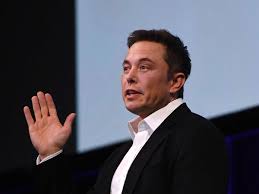Tesla CEO Elon Musk announced Tuesday that he will reduce the time he spends on the Trump-era Department of Government Efficiency (DOGE) starting next month, citing a renewed focus on his companies amid declining Tesla sales and mounting criticism over his involvement in the controversial initiative.
Musk, who has played a key role in DOGE’s efforts to cut federal jobs, has faced political backlash and protests, with some Tesla showrooms targeted by vandalism. Investors have also raised concerns over his split focus as Tesla’s performance falters.
“The large slog of work necessary to get the DOGE team in place and working with the government to get the financial house in order is mostly done,” Musk said during Tesla’s earnings call. He added that he will still devote about 40% of his time to the government role.
The news lifted Tesla shares, which rose 5.5% in after-hours trading, up from a 4% gain earlier in the call. Still, the stock remains down nearly 50% from its December peak.
Despite current challenges, Tesla reported better-than-expected profits in its core electric vehicle business and confirmed plans to introduce a more affordable model. However, the company warned that it will reassess its growth projections in the next quarter due to rising global economic and political uncertainty.
“We find it difficult to measure the impacts of shifting global trade policy on the automotive and energy supply chains,” Tesla said in a statement. “Changing political sentiment could have a meaningful impact on demand for our products in the near-term.”
Tariff tensions are further complicating Tesla’s outlook. The U.S. recently hiked tariffs on Chinese imports to 145%, prompting retaliatory measures from China. In response, Tesla has suspended new Model S and Model X orders in China and halted some component imports from the country, according to Reuters.
Musk reiterated his support for lower tariffs and acknowledged that economic volatility is dampening consumer demand. “Macro demand for cars isn’t immune,” he said. “Economic uncertainty causes people to pause on making a major capital purchase like a car.”
Nzubechukwu Eze.









